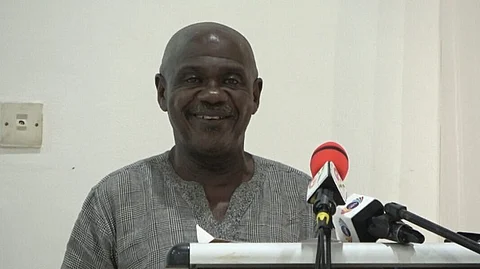

Former Executive Secretary of the Narcotic Control Commission, Yaw Akrasi Sarpong, has urged the law enforcement agencies in the country not to focus so much on arrests and prosecutions of persons using drugs such as weed for personal use.
He claims that the newly passed Narcotics Control Commission Act 2020, Act 1019, signed by President Nana Akufo-Addo on May 11, 2020, and passed on March 20, 2020, "treats drug use and dependence as a public health issue rather than focusing on enforcement, incarceration, punishment, and repression."
At a training workshop on ensuring the effective implementation of the Narcotics Control Commission Act 2020, Act 1019, in Kumasi, Mr. Sarpong made the remark to police prosecutors and detectives. The workshop was organized by the Perfecter of Sentiment (POS) Foundation, a human rights civil society organization that focuses its activities on access to justice, human rights, policy reforms, youth development, and social accountability.
He explained that people who use drugs rather need help “as it is a public health issue just like someone suffering from malaria or an ulcer”.
Mr. Sarpong emphasized how crucial it is for prosecutors and law enforcement to be current on the law and understand their duties in its execution.
He can not understand why the state should put someone behind bars for having some marijuana for personal use while simultaneously incurring significant costs to care for the prisoner.
“I am not encouraging people to use drugs/weed, it can be addictive, but let us differentiate between private life and public safety”, he indicated.
Mr. Akrasi Sarpong mentioned that the new law allows someone to possess a certain quantity of weed for daily use.
“The police are usually the first point of contact, their role in safety and security of citizens is very important, hence the need to ensure proper implementation of the new law within the spirit that is intended”, he stressed.
He advised policymakers to legalize marijuana growing so that it may be exported and bring in foreign currency, since many nations across the world have already done so.
Jonathan Osei-Wusu, the executive director of POS, added that drug use was a problem for both public health and human rights and referred to it as a "substance use disorder."
He said “It has been tested and proven all over the world that substance use disorder is not an issue of criminality where people are to be sentenced but rather need help”.
He emphasized that the new law had included provisions for rehabilitation, allowing the state and government to assist in the rehabilitation of such individuals.
Jonathan Osei-Wusu further argued against penalizing drug users who have not killed anyone or committed any acts of violence.
In his words, if such individuals received a sentence for using the drug, "they come out toughened to be more harmful to society."
The International Drug Policy Consortium's Maria-Goretti Ane Loglo stated that Ghana has set an example for several West African countries by revisiting its drug policies and that additional steps in the law's implementation are necessary "so that we get it all right for others to follow."
